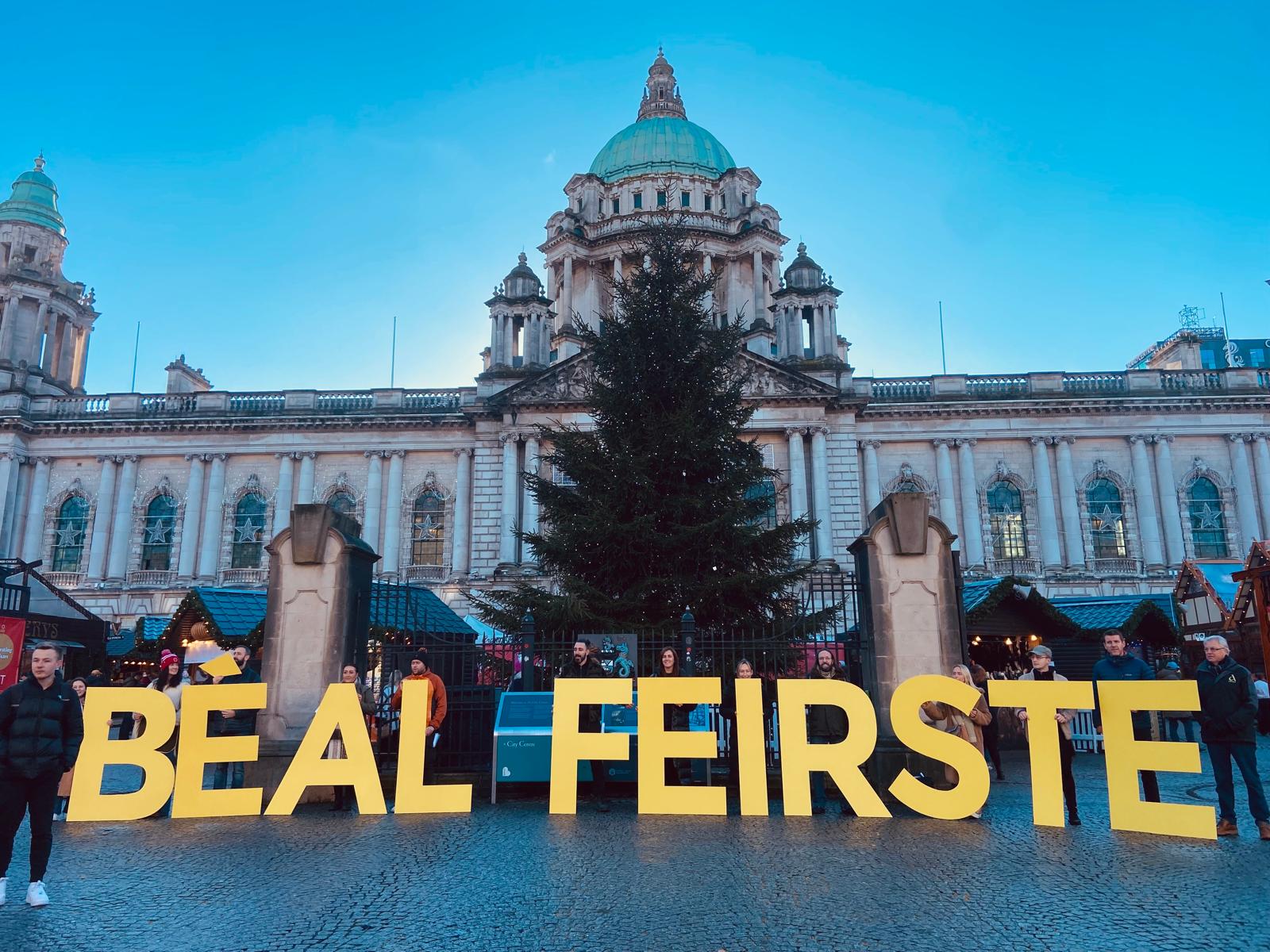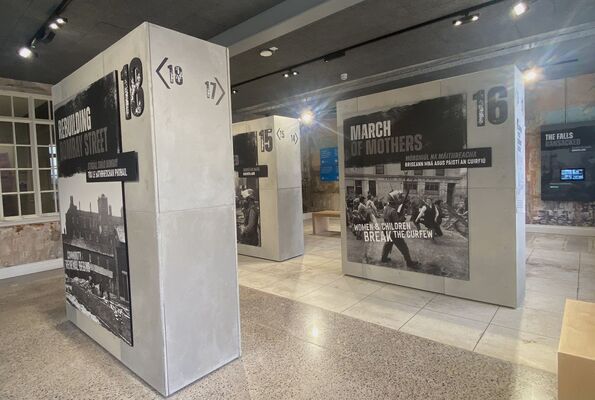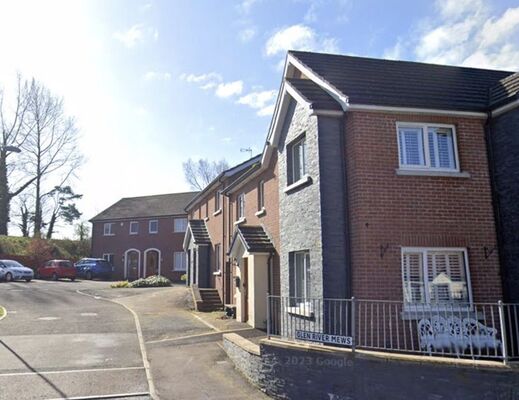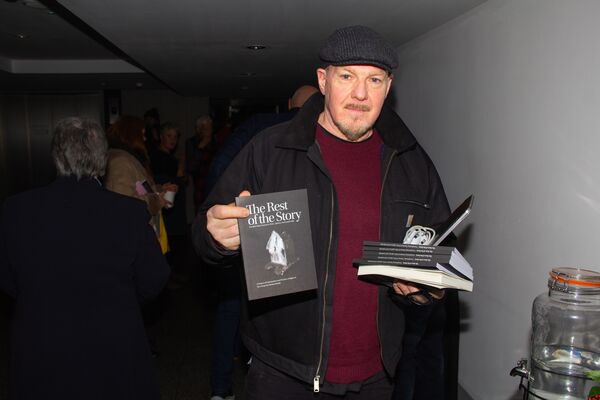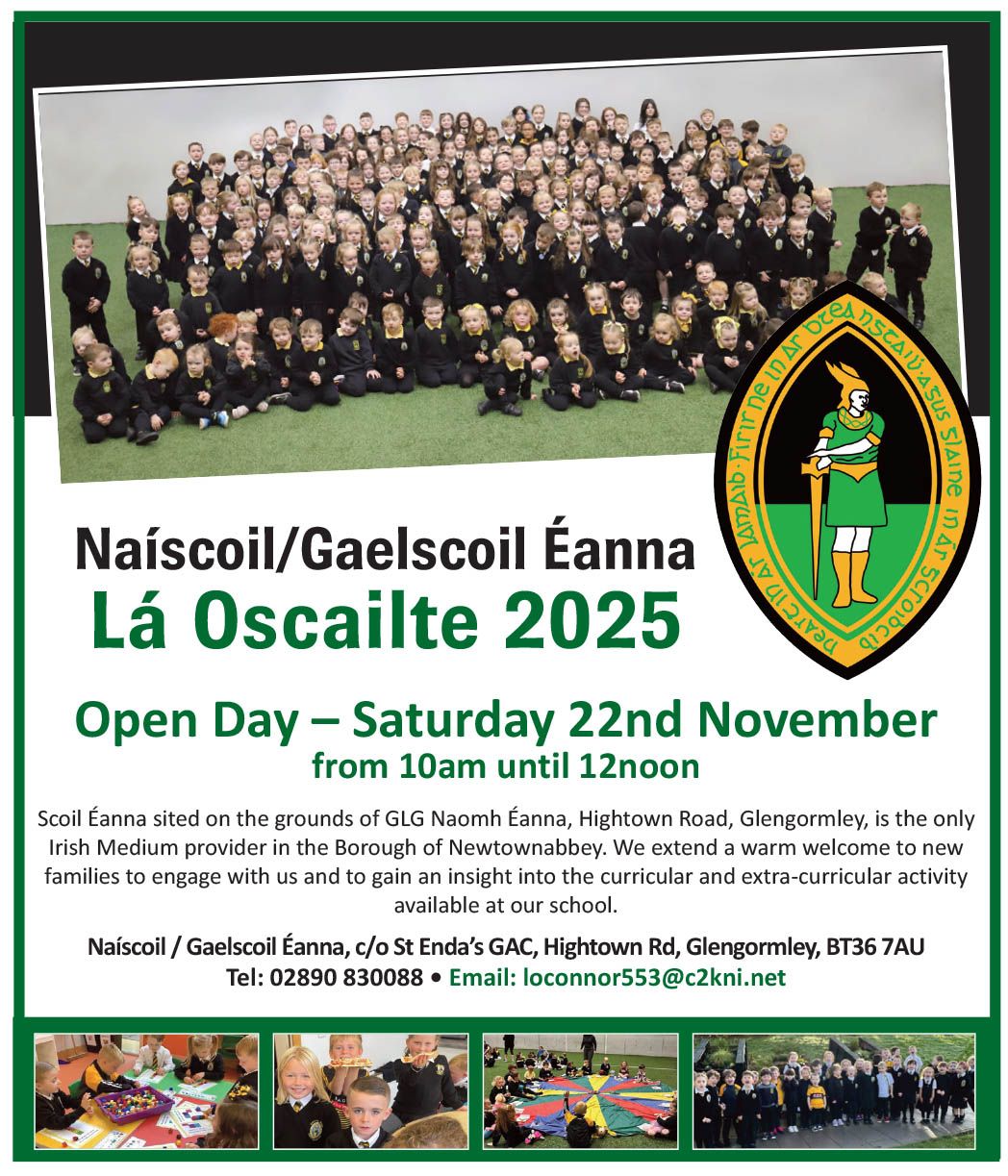THE President of Conradh na Gaeilge has welcomed a vote at Stormont in support of Belfast City Council’s dual-language policy.
A motion brought by DUP MLA Brian Kingston in the Assembly on Monday opposing the council policy was defeated by 41 votes to 28. Mr Kingston called on Belfast City Council to “urgently review and replace its policy that Irish language street signs can be imposed upon communities with just 15 per cent support”.
The North Belfast MLA said: “In the early days of the new policy, councillors adopted a convention of not approving an Irish language street sign where more residents voted against than for. However, since March this year, nationalist councillors, supported by Green Party councillors, have been forcing applications through, ignoring the majority wishes of residents and the objection of unionist and even Alliance councillors.
“In my constituency of North Belfast, for Sunningdale Park North, 22 residents voted for an Irish language sign, but 33 voted against it. Some 60 per cent of respondents were against, yet the sign was forced through by nationalist and Green Party councillors.”
He said he has been visited by residents who have told him that Irish signage could reduce the value of their property “by reducing potential interest from the unionist community”.
Sinn Féin MLA Pat Sheehan said opposition to bilingual street signs was minimal. Yesterday, ahead of the debate Conradh na Gaeilge published the results of a survey that found that nine-out-of-ten people in Belfast supports the Council's new dual language signage policy.
“Since this policy was introduced, and the first streets were approved in January 2023, more than 530 streets have been surveyed across Belfast," said the West Belfast MLA. "Opposition has been minute. Only 2·9 per cent of all residents surveyed expressed any opposition – an average of 1·7 per cent per street. In more than three quarters of streets surveyed, not a single resident objected. Even if you exclude the Gaeltacht Quarter, the pattern is the same. Across 244 streets, only 3·9 per cent of residents opposed dual-language signage, while around nine out of 10 people who responded supported it.
“On more than half of all streets — 54 per cent — there was not a single objection, and, in 96 per cent of cases, more residents supported dual-language signage than opposed it. Across all 536 streets surveyed, not a single street — not one — returned a majority opposed to dual-language signage. That tells us something important: the policy is not divisive; it is inclusive. It reflects the modern and confident city that Belfast has become.”
Welcoming the rejection of the DUP motion, Ciarán Mac Giolla Bhéin, President of Conradh na Gaeilge, said: “Tonight, the Assembly rejected attempts by the DUP to undermine that policy, voting against a DUP motion by 41 to 28, affirming their commitment to a minority rights compliant policy based on guidance from the United Nations and other international experts.
"Whilst the DUP have attempted to create the illusion of mass, widespread opposition amongst residents across the city, research carried out by Conradh na Gaeilge, examining the data of Belfast City Council surveys, shows that across 536 streets, only 2.9 per cent of residents opposed signs. As many contributors added during tonight’s debate, dual-language signage includes both Irish and English, side by side, and is in and of itself a physical demonstration of equality in places shared by various linguistic groups.
"There is nothing to fear from equality, rather, let us celebrate and respect diversity and inclusion. We urge members of the Executive to quickly return to their own obligations on the Irish language, to finalise the appointment of an Irish Language Commissioner without any further delay and finally adopt an Irish Language Strategy which has been a legal duty since 2006.”
